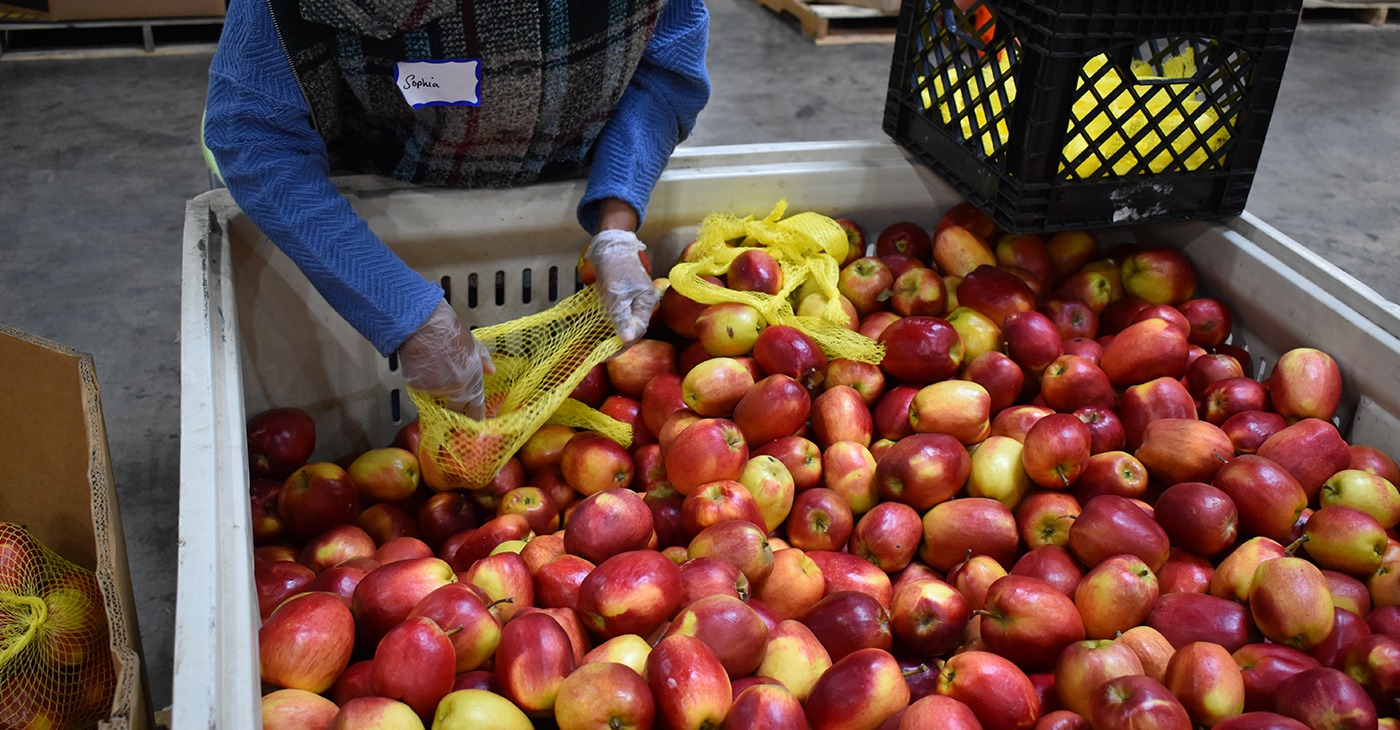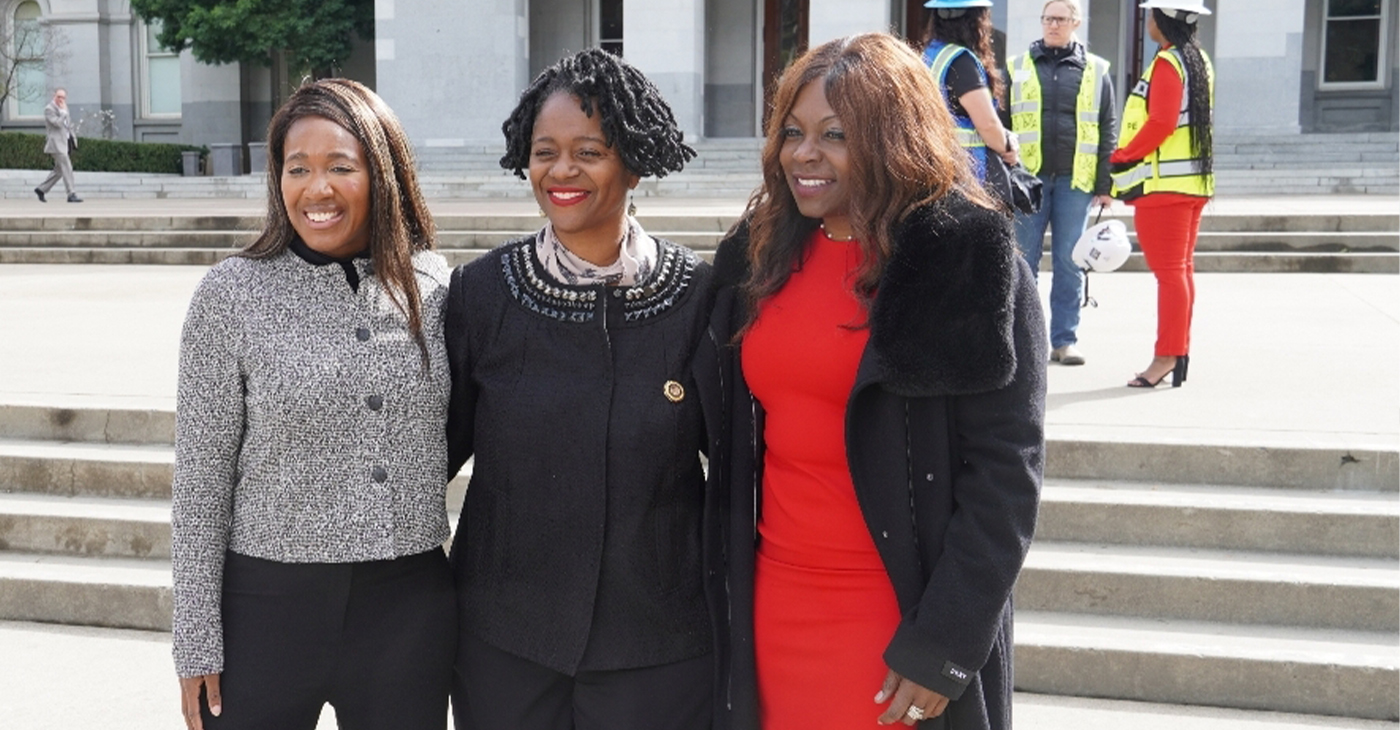Business
Kodak to Continue Making Movie Film, Supplying Hollywood

In this Oct. 3, 2011 file photo, Kodak headquarters is shown in Rochester, N.Y. (AP Photo/David Duprey)
CAROLYN THOMPSON, Associated Press
ROCHESTER, N.Y. (AP) — The Eastman Kodak Co. will continue to make motion picture film in the age of digital filmmaking after reaching new supply agreements with the major Hollywood studios.
The Rochester-based photography and film pioneer had been in talks with the studios, as well as several filmmakers including Quentin Tarantino, Judd Apatow and Christopher Nolan, to keep movie film alive after seeing sales fall 96 percent since 2006.
The agreements announced late Wednesday call for Kodak to continue to supply motion picture film to 20th Century Fox, Walt Disney Co., Warner Bros. Entertainment, NBC Universal, Paramount Pictures and Sony Pictures. Without the pacts, production of motion picture film, which Kodak began in 1896, was in danger of being halted.
Competitor Fujifilm stopped production of movie film in 2013.
“Film has long been — and will remain — a vital part of our culture,” Kodak Chief Executive Jeff Clarke said in a statement. “With the support of the studios, we will continue to provide motion picture film, with its unparalleled richness and unique textures, to enable filmmakers to tell their stories and demonstrate their art.”
Details of the agreements were not released but cover multiple years, according to Kodak.
Three of this year’s eight best-picture Oscar nominees — “Boyhood,” ”The Grand Budapest Hotel,” and “The Imitation Game” — were shot on Kodak film, Kodak spokesman Christopher Veronda said.
Several movies due out this year, including “Mission: Impossible 5” and “Star Wars: Episode VII — The Force Awakens,” are being produced on film, Kodak said.
“Enabling artists to use film will help them to create the moments that make cinema history,” said Andrew Evenski, Kodak’s president of Entertainment & Commercial Films. “The agreements announced today are a powerful testament to the power of film and the creative vision of the artists telling them.”
Founded by George Eastman in 1880, Kodak is credited with popularizing photography at the start of the 20th century, but its revenues today are primarily from commercial imaging. Film now provides less than 10 percent of company revenues.
Copyright 2015 The Associated Press. All rights reserved. This material may not be published, broadcast, rewritten or redistributed.
Activism
Oakland’s Most Vulnerable Neighborhoods Are Struggling to Eat and Stay Healthy
For this story, we focused on eight of the 12 ZIP codes in Oakland, those pertaining to East and West Oakland. The ZIP codes include 94601, 94603, 94505, 94606, 94607, 94612, 94619, and 94621. We chose to concentrate on these specific areas, known as the Oakland Flatlands, due to its longstanding history of extremely low-income households and racial inequalities compared to ZIP codes in the Oakland Hills.

These Are the Contributing Factors
By Magaly Muñoz
On a recent trip to the grocery store in West Oakland, single mom Neemaka Tucker contemplated what’s more important to her family’s needs – expensive fresh produce or cheap instant ramen noodles.
“I’m trying to teach my kids to eat healthy, but then my pocket is like, ‘I’m broke’. Getting the processed foods is going to fill you up faster, even though it’s not good for your body,” Tucker said.
Bay Area residents are spending over $100 more a month on groceries than they were pre-pandemic. Those higher costs are straining wallets and forcing families to choose cheap over healthy, possibly contributing to more health problems. These problems are disproportionately affecting people in East and West Oakland, in neighborhoods primarily of low-income families of color.
Oakland residents are experiencing more health problems linked to poor diets, like diabetes, obesity, and heart disease than before the pandemic, particularly in neighborhoods of East and West Oakland, data shows.
“We see a direct relationship between what we eat and medical problems. What we eat affects our weight, our blood pressure and all those things circle back and have an effect on your diseased state,” said Dr. Walter Acuña, a family physician at Oakland Kaiser Medical.
According to data by UCLA Center for Health Policy Research, about 1 in 10 adults in East Oakland neighborhoods experience food insecurity. That’s twice as many people than in most other parts of the city.
Oakland residents’ health concerns are growing
For this story, we focused on eight of the 12 ZIP codes in Oakland, those pertaining to East and West Oakland. The ZIP codes include 94601, 94603, 94505, 94606, 94607, 94612, 94619, and 94621. We chose to concentrate on these specific areas, known as the Oakland Flatlands, due to its longstanding history of extremely low-income households and racial inequalities compared to ZIP codes in the Oakland Hills.
According to UCLA research, about one out of every five adults under 65 in these areas of East Oakland reported poor or fair health. But these problems weren’t isolated to East Oakland. About one in six adults under 65 reported poor or fair health in areas of West Oakland, like the 94607 ZIP codes.
A handful of ZIP codes (94601, 94603, 94605, 94621) in East Oakland also have the poorest health outcomes of any area in the city. Residents there experience the highest rates of obesity and adult diabetes.
UCLA data shows that there has been a two percent increase in the number of adults diagnosed with diabetes in West Oakland (ZIP code 94607) since 2017- 2018. An estimated 11.8% of adults in 94607 in 2021-22 said they had diabetes, whereas 9.8% reported it several years before.
But the problem is more significant, only a few miles away.
In the 94621 neighborhood in East Oakland, an estimated 16.6% of adult residents reported having diabetes in 2021-2022, and the neighboring ZIPs averaged about 15%, according to UCLA data. 2017-2018 data show that only 11% reported a diabetes diagnosis in the 94621, a 5.6% change from recent numbers. The ZIP code estimates are higher than the states’, county’s, and city estimates—11%, 12.4%, and 12.3%, respectively.
Doctors working with Oakland and the larger Alameda County area are seeing an increase in the number of people coming to their offices with chronic health issues in the last few years.
Acuña said he’s frequently treating more and more adults with diabetes and hypertension.
Patients often tell him that it’s easier to afford unhealthy, cheap food than it is to afford the things that are going to make them feel better and stay healthy, he said
Dr. Steven Chen, Chief Medical Officer of Alameda County’s Recipe4Health, said that he’s seeing more kids across the region suffering from obesity, or adults on the brink of developing chronic illnesses, than in previous years.
“Chronic disease is a big epidemic. What’s the root of it? I think food is a big component,” Chen said.
He has seen evidence of improved health when people have access to better food. People with Type 2 diabetes experience a boost in metabolic and sugar management to healthy levels, and those with high blood pressures experience normal numbers.
Recipe4Health is a county-wide program that uses food-based interventions to treat and prevent chronic conditions, address food insecurity, and improve health and racial equity. The program provides up to 12 weeks of groceries for people who are at risk or are experiencing food insecurity.
It’s important for public sectors to have these kinds of investments locally because the results are tangible, he said.
“If our values are that no one gets left behind and that everyone should have an equal opportunity to health and health equity, then we need always to ensure that we are serving those communities that often are left behind,” Chen said.
Experiencing food insecurity in Oakland
Unfortunately, healthy food is becoming increasingly difficult for Oakland residents to access. Over the last five months, The Oakland Post heard from over 50 residents about their struggles finding and affording healthy food. We visited food banks, talked with people at markets and food distribution events, and distributed an online survey.
We learned that residents are travelling to other nearby cities to get cheaper groceries, financial assistance programs like CalFresh are challenging to navigate, wages are low, and food is getting more expensive while the quality appears to be dropping.
Andres, who asked us not to use his last name due to his undocumented status, said he often relies on food distribution from organizations like the Street Level Health Project for his weekly groceries. He wouldn’t be able to eat complete meals otherwise, due to the lack of consistent employment at his car washing job during the winter months.
With eight people living under one roof and only three adults contributing to the household income, he said things are tight.
“During these months, we’re always backed up on paying our bills, including rent, and we’re trying to do more with what little that we have, which is not much,” Andres said.
Andres’ biggest complaint about grocery shopping is the lack of fresh and healthy food that is affordable and good quality. He’s been to food banks and grocery stores where the produce rots within a day or two of receiving it, forcing him to buy fast food in order to feed his family.
Down the street at the Unity Council’s weekly grocery distribution, Mayra Segovia, a single woman in her 50s, said she visits this location almost every week to get food. Her fixed income on Social Security makes it difficult to afford her basic necessities.
Segovia said she receives CalFresh funding to pay for her groceries, but the almost $300 assistance is not enough to get her through the month, so she gets creative. She often does favors for local vendors in exchange for meals. Even with the Social Security checks of a little over $1,000 a month and other resources like subsidized housing, the cost of living is going up. She’s blaming the government for their contribution to the problem.
“We’re not all rich like Donald Trump and all those corrupt politicians, we don’t have that much money like that,” Segovia said.
Social service assistance is falling short
Several people we spoke with said financial food assistance like CalFresh isn’t supplementing the gaps in their budgets.
Neemaka Tucker, mom of two elementary-aged kids, said she receives $123 a month from CalFresh, yet she’s spending almost $600 on groceries at the store. She feels like she should be getting more assistance, especially considering her lower, single income. “I’m appreciative [of the CalFresh funds] that I get anything because every little bit helps, but it’s still not enough for my family,” Tucker said.
A lack of grocery store options in West Oakland has also made it even harder to get food on the table, Tucker said.
There are more convenience stores than grocery stores within walking distance to her home on the northeast side of West Oakland, and the prices seem to be exacerbated because of their limited food stock, Tucker said. A gallon of milk at the store could run her up to $3.80, but at the local convenience market, it’s nearly $6.
“I just find that the majority of the money that I’m spending is on the travel to get the food, then on the food itself,” Tucker said.
Healthy groceries are a necessity to manage Tucker’s health. She is diabetic and has high blood pressure, so eating and buying fresh produce is important because keeping her symptoms at bay is a must for her health. It’s been difficult to get what she needs for her body to maintain her chronic health problems because she often battles with lack of affordability of what she’s buying, she said.
“I find myself trying to figure out what’s healthy for each person and then have enough of it so we all can [eat well],” Tucker said. “Back in the day, bread and potatoes used to be staples to get your kids full, but food like that makes me sick because that’s too much [carbohydrates] since I have diabetes.”
Both her kids are athletes who also need healthy food. She’s finding that even though her kids don’t eat meat, which tends to be expensive, she’s still spending more than she’d like to on fruit and vegetables.
In Oakland, the local investment is low
In the last year, the city has cut grants to nonprofits like Meals on Wheels, which serves 3,000 hungry seniors, and Street Level Health Project, which provides groceries and meals to undocumented day laborers. Tax measures, like the Sugar-Sweetened Beverage Tax, were intended to help decrease the food and health crisis but are also not being managed in the way Oakland residents voted for, according to community leaders and advisory board members. The majority of the tax money is going towards funding city agencies.
The Oakland Post contacted city and county officials several times for comment but did not get a response.
Across the Bay Area, San Francisco is investing millions to address food insecurity through a pilot program that establishes free grocery stores in food desert districts. Shoppers of the pilot market said they have seen a positive change to the way they feed their families and how much they’re able to save every month.
Oakland resident PC, who chose to use an abbreviated version of his name to protect his privacy, said he’d be interested in seeing a market like the one in San Francisco because it would alleviate the tight budget he has for himself.
PC said he’s had some unpleasant experiences with food distribution workers being rude to residents waiting for grocery bags. “The line is already long as it is and can sometimes feel shameful when you’re going through hard times,” PC said, so an option to get free food in a setting that resembles a market would be ideal.
The garden lead for West Oakland’s People’s Programs, ab banks, helps deliver fresh produce from a local garden to households in the projects, because the need for healthier options has been particularly high in recent years, they said.
People’s Program serves around 170 people in the 94607 area with groceries, along with a mobile health clinic and free breakfast program. Their goal is to serve a community that already deals with its own set of disadvantages, and looks to show people that not everything needs to contribute to a bigger gain and people have the right to use the local land to grow the food they need.
Banks said they see firsthand what the lack of investment in West Oakland has done to folks: homelessness, priced out living situations, environmental racism, and lack of food access.
They explained that although they feel a duty and a calling to the work at People’s Program to help an underserved neighborhood, they questioned how the city is pouring millions of dollars towards finding solutions to Oakland’s biggest problems but no significant change has happened yet. banks said there are basic necessities that should be birthrights and not restricted to what the government thinks people need.
“[The investment] is not enough. There’s no access to fair housing, not enough access to food, not enough access to healthcare. But that’s just not specific to Oakland, that’s a United States problem,” banks said.
Reporter Magaly Muñoz produced this story as part of a series as a 2024 USC Annenberg Center for Health Journalism Data Fellow and Engagement Grantee.
Activism
Sen. Lola Smallwood-Cuevas Honors California Women in Construction with State Proclamation, Policy Ideas
“Women play an important role in building our communities, yet they remain vastly underrepresented in the construction industry,” Smallwood-Cuevas stated. “This resolution not only recognizes their incredible contributions but also the need to break barriers — like gender discrimination.

By Antonio Ray Harvey, California Black Media
To honor Women in Construction Week, Sen. Lola Smallwood-Cuevas (D-Los Angeles), a member of the California Legislative Black Caucus (CLBC), introduced Senate Concurrent Resolution (SCR) 30 in the State Legislature on March 6. This resolution pays tribute to women and highlights their contributions to the building industry.
The measure designates March 2, 2025, to March 8, 2025, as Women in Construction Week in California. It passed 34-0 on the Senate floor.
“Women play an important role in building our communities, yet they remain vastly underrepresented in the construction industry,” Smallwood-Cuevas stated. “This resolution not only recognizes their incredible contributions but also the need to break barriers — like gender discrimination.
Authored by Assemblymember Liz Ortega (D-San Leandro), another bill, Assembly Concurrent Resolution (ACR) 28, also recognized women in the construction industry.
The resolution advanced out of the Assembly Committee on Rules with a 10-0 vote.
The weeklong event coincides with the National Association of Women In Construction (NAWIC) celebration that started in 1998 and has grown and expanded every year since.
The same week in front of the State Capitol, Smallwood, Lt. Gov. Eleni Kounalakis, Assemblymember Josh Hoover (R-Folsom), and Assemblymember Maggie Krell (D-Sacramento), attended a brunch organized by a local chapter of NAWIC.
Two of the guest speakers were Dr. Giovanna Brasfield, CEO of Los Angeles-based Brasfield and Associates, and Jennifer Todd, President and Founder of LMS General Contractors.
Todd is the youngest Black woman to receive a California’s Contractors State License Board (A) General Engineering license. An advocate for women of different backgrounds, Todd she said she has been a woman in construction for the last 16 years despite going through some trying times.
A graduate of Arizona State University’s’ Sandra Day O’Connor College of Law, in 2009 Todd created an apprenticeship training program, A Greener Tomorrow, designed toward the advancement of unemployed and underemployed people of color.
“I always say, ‘I love an industry that doesn’t love me back,’” Todd said. “Being young, female and minority, I am often in spaces where people don’t look like me, they don’t reflect my values, they don’t reflect my experiences, and I so persevere in spite of it all.”
According to the U.S. Bureau of Labor Statistics, only 11.2% of the construction workforce across the country are female. Overall, 87.3% of the female construction workers are White, 35.1% are Latinas, 2.1% are Asians, and 6.5% are Black women, the report reveals.
The National Association of Home Builders reported that as of 2022, the states with the largest number of women working in construction were Texas (137,000), California (135,000) and Florida (119,000). The three states alone represent 30% of all women employed in the industry.
Sen. Susan Rubio (D-Baldwin Park) and the California Legislative Women’s Caucus supported Smallwood-Cuevas’ SCR 30 and requested that more energy be poured into bringing awareness to the severe gender gap in the construction field.
“The construction trade are a proven path to a solid career. and we have an ongoing shortage, and this is a time for us to do better breaking down the barriers to help the people get into this sector,” Rubio said.
Activism
Report Offers Policies, Ideas to Improve the Workplace Experiences of Black Women in California
The “Invisible Labor, Visible Struggles: The Intersection of Race, Gender, and Workplace Equity for Black Women in California” report by the California Black Women’s Collective Empowerment Institute (CBWCEI), unveiled the findings of a December 2024 survey of 452 employed Black women across the Golden State. Three-fifths of the participants said they experienced racism or discrimination last year and 57% of the unfair treatment was related to incidents at work.

By McKenzie Jackson, California Black Media
Backed by data, a report released last month details the numerous hurdles Black women in the Golden State must overcome to effectively contribute and succeed in the workplace.
The “Invisible Labor, Visible Struggles: The Intersection of Race, Gender, and Workplace Equity for Black Women in California” report by the California Black Women’s Collective Empowerment Institute (CBWCEI), unveiled the findings of a December 2024 survey of 452 employed Black women across the Golden State. Three-fifths of the participants said they experienced racism or discrimination last year and 57% of the unfair treatment was related to incidents at work.
CBWCEI President and CEO Kellie Todd Griffin said Black women have been the backbone of communities, industries, and movements but are still overlooked, underpaid, and undervalued at work.
“The data is clear,” she explained. “Systemic racism and sexism are not just historical injustices. They are active forces shaping the workplace experiences of Black women today. This report is a call to action. it demands intentional polices, corporate accountability, and systemic changes.”
The 16-page study, conducted by the public opinion research and strategic consulting firm EVITARUS, showcases the lived workplace experiences of Black women, many who say they are stuck in the crosshairs of discrimination based on gender and race which hinders their work opportunities, advancements, and aspirations, according to the report’s authors, Todd Griffin and CBWCEI researcher Dr. Sharon Uche.
“We wanted to look at how Black women are experiencing the workplace where there are systematic barriers,” Todd Griffin told the media during a press conference co-hosted by Ethnic Media Services and California Black Media. “This report is focused on the invisible labor struggles of Black women throughout California.”
The aspects of the workplace most important to Black women, according to those surveyed, are salary or wage, benefits, and job security.
However, only 21% of the survey’s respondents felt they had strong chances for career advancement into the executive or senior leadership ranks in California’s job market; 49% felt passed over, excluded from, or marginalized at work; and 48% felt their accomplishments at work were undervalued. Thirty-eight percent said they had been thought of as the stereotypical “angry Black woman” at work, and 42% said workplace racism or discrimination effected their physical or mental health.
“These sentiments play a factor in contributing to a workplace that is unsafe and not equitable for Black women in California,” the report reads.
Most Black women said providing for their families and personal fulfillment motivated them to show up to work daily, while 38% said they were dissatisfied in their current job with salary, supervisors, and work environment being the top sources of their discontent.
When asked if they agree or disagree with a statement about their workplace 58% of Black women said they feel supported at work, while 52% said their contributions are acknowledged. Forty-nine percent said they felt empowered.
Uche said Black women are paid $54,000 annually on average — including Black single mothers, who averaged $50,000 — while White men earn an average of $90,000 each year.
“More than half of Black families in California are led by single Black women,” said Uche, who added that the pay gap between Black women and White men isn’t forecasted to close until 2121.
-

 #NNPA BlackPress4 weeks ago
#NNPA BlackPress4 weeks agoTarget Takes a Hit: $12.4 Billion Wiped Out as Boycotts Grow
-

 Activism3 weeks ago
Activism3 weeks agoUndocumented Workers Are Struggling to Feed Themselves. Slashed Budgets and New Immigration Policies Bring Fresh Challenges
-

 #NNPA BlackPress4 weeks ago
#NNPA BlackPress4 weeks agoBREAKING Groundbreaking Singer Angie Stone Dies in Car Accident at 63
-

 Activism4 weeks ago
Activism4 weeks agoOakland Post: Week of February 26 – March 4, 2025
-

 Arts and Culture4 weeks ago
Arts and Culture4 weeks agoBeverly Lorraine Greene: A Pioneering Architect and Symbol of Possibility and Progress
-

 #NNPA BlackPress4 weeks ago
#NNPA BlackPress4 weeks agoNAACP Legend and Freedom Fighter Hazel Dukes Passes
-

 #NNPA BlackPress4 weeks ago
#NNPA BlackPress4 weeks agoTrump Kicks the Ukrainian President Out of the White House
-

 #NNPA BlackPress4 weeks ago
#NNPA BlackPress4 weeks agoApple Shareholders Reject Effort to Dismantle DEI Initiatives, Approve $500 Billion U.S. Investment Plan
























































